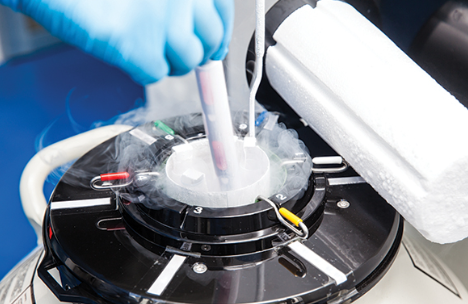The Crucial Role of Liquid Nitrogen in IVF Clinics

In vitro fertilisation (IVF) has transformed the prospects for couples experiencing infertility, offering them a viable path to parenthood. The intricacies of IVF involve advanced scientific techniques and state-of-the-art technology. Among these, liquified nitrogen emerges as an unsung hero, playing a critical role in the success of IVF procedures. Its ability to preserve biological materials at ultra-low temperatures is fundamental to IVF. Understanding the various applications of this gas in IVF clinics highlights its indispensable nature and underscores why it remains a cornerstone of fertility treatments.
Safeguarding Embryo Viability
Liquid nitrogen is indispensable for preserving embryos during the IVF process. Once embryos are created, they must be stored until they are ready for implantation. Its ultra-low temperature of -196°C provides the perfect environment to freeze and store these embryos. This cryopreservation process ensures that the embryos remain viable and free from damage, no matter how long they are stored. The ability to preserve embryos effectively allows for multiple attempts at implantation, significantly increasing the chances of a successful pregnancy. Without the reliable freezing capabilities of liquified nitrogen, the longevity and integrity of embryos could be compromised, potentially reducing the chances of conception.
Ensuring Sperm Preservation
Just as embryos need to be preserved, so too does sperm. This gas is used to freeze and store sperm samples collected from donors or patients. This is particularly important for individuals undergoing medical treatments that could affect their fertility, such as chemotherapy. By freezing sperm, patients can ensure they have viable samples available for future use in IVF procedures. The reliability of this gas in maintaining the integrity of these samples over extended periods is crucial for the success of these treatments. By ensuring that sperm can be preserved without degradation, this gas is critical for individuals looking to protect their reproductive future.
Facilitating Egg Freezing
Egg freezing is another vital aspect of IVF that relies onliquid nitrogen. Women may choose to freeze their eggs for various reasons, such as delaying childbirth for career or health reasons. The process involves harvesting eggs and then freezing them using the gas. This ensures that the eggs remain in a state of suspended animation until the woman is ready to use them. The ability to freeze eggs effectively gives women more control over their reproductive choices and helps preserve fertility. In this context, nitrogen’s precision and reliability are crucial, as they allow for the long-term storage of eggs without compromising their quality or viability.
Enhancing Genetic Testing Accuracy
Genetic testing is often conducted on embryos before implantation to identify potential genetic disorders. For this testing to be accurate, embryos must be preserved in their current state. The gas allows for the rapid freezing of embryos, maintaining their integrity for genetic analysis. This quick freezing process is essential to prevent cellular changes affecting test results. Accurate genetic testing ensures the health and viability of the embryos selected for implantation. By enabling precise preservation, the gas helps safeguard the integrity of genetic material, thus enhancing the accuracy of pre-implantation genetic diagnoses.
Streamlining IVF Lab Operations
The use of the gas is not limited to preserving biological samples. It also plays a significant role in the overall operations of an IVF lab. Many instruments and equipment in these labs require ultra-low temperatures to function correctly. It provides a reliable and efficient cooling solution, ensuring these tools operate optimally. This is essential for maintaining the high standards required for successful IVF treatments. Additionally, the safety and consistency of the gas as a cooling agent help streamline lab processes, improving overall efficiency.
Liquid nitrogen is more than just a freezing agent in IVF clinics; it is a cornerstone of the process. Its role in ensuring the viability and integrity of these materials cannot be overstated. As technology and medical science continue to advance, the importance of nitrogen in IVF clinics will only grow, cementing its place as an indispensable component of fertility treatments.



